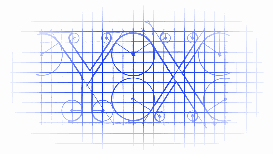将一种cell当做几种cell使用
将一种cell当做几种cell使用

将一种cell当做几种cell用是有着一些意义的,比如,有时候,不同的cell之间差异很小,如果再派生一个cell出来,就会显得很麻烦,这时候,将这个cell当做几个cell用才有市场的说:)
效果:



源码:
ModelCell.h 与 ModelCell.m
// // ModelCell.h // Cells // // Copyright (c) 2014年 Y.X. All rights reserved. // #import <UIKit/UIKit.h> @interface ModelCell : UITableViewCell @property (nonatomic, assign) BOOL show1; @property (nonatomic, assign) BOOL show2; @property (nonatomic, assign) BOOL show3; @end
RootViewController.m
// // RootViewController.m // Cells // // Copyright (c) 2014年 Y.X. All rights reserved. // #import "RootViewController.h" #import "ModelCell.h" @interface RootViewController ()<UITableViewDataSource, UITableViewDelegate> @property (nonatomic, strong) UITableView *tableView; @property (nonatomic, strong) NSArray *dataSource; @end @implementation RootViewController - (void)viewDidLoad { [super viewDidLoad]; // tableView _tableView = [[UITableView alloc] initWithFrame:self.view.bounds style:UITableViewStylePlain]; _tableView.dataSource = self; _tableView.delegate = self; _tableView.separatorStyle = UITableViewCellSeparatorStyleNone; [self.view addSubview:_tableView]; } #pragma mark - UITableView's dataSource & delegate - (NSInteger)tableView:(UITableView *)tableView numberOfRowsInSection:(NSInteger)section { return 100; } - (UITableViewCell *)tableView:(UITableView *)tableView cellForRowAtIndexPath:(NSIndexPath *)indexPath { static NSString *reusedFlag = @"YouXianMing"; ModelCell *cell = [tableView dequeueReusableCellWithIdentifier:reusedFlag]; if (cell == nil) { cell = [[ModelCell alloc] initWithStyle:UITableViewCellStyleDefault reuseIdentifier:reusedFlag]; } cell.show1 = YES; cell.show2 = YES; cell.show3 = YES; return cell; } - (CGFloat)tableView:(UITableView *)tableView heightForRowAtIndexPath:(NSIndexPath *)indexPath { return 100.f; } @end
核心的地方:
根据属性的setter方法动态隐藏cell中的某些控件

然后在配置cell的时候动态设定要显示的控件

just so easy :)


 浙公网安备 33010602011771号
浙公网安备 33010602011771号